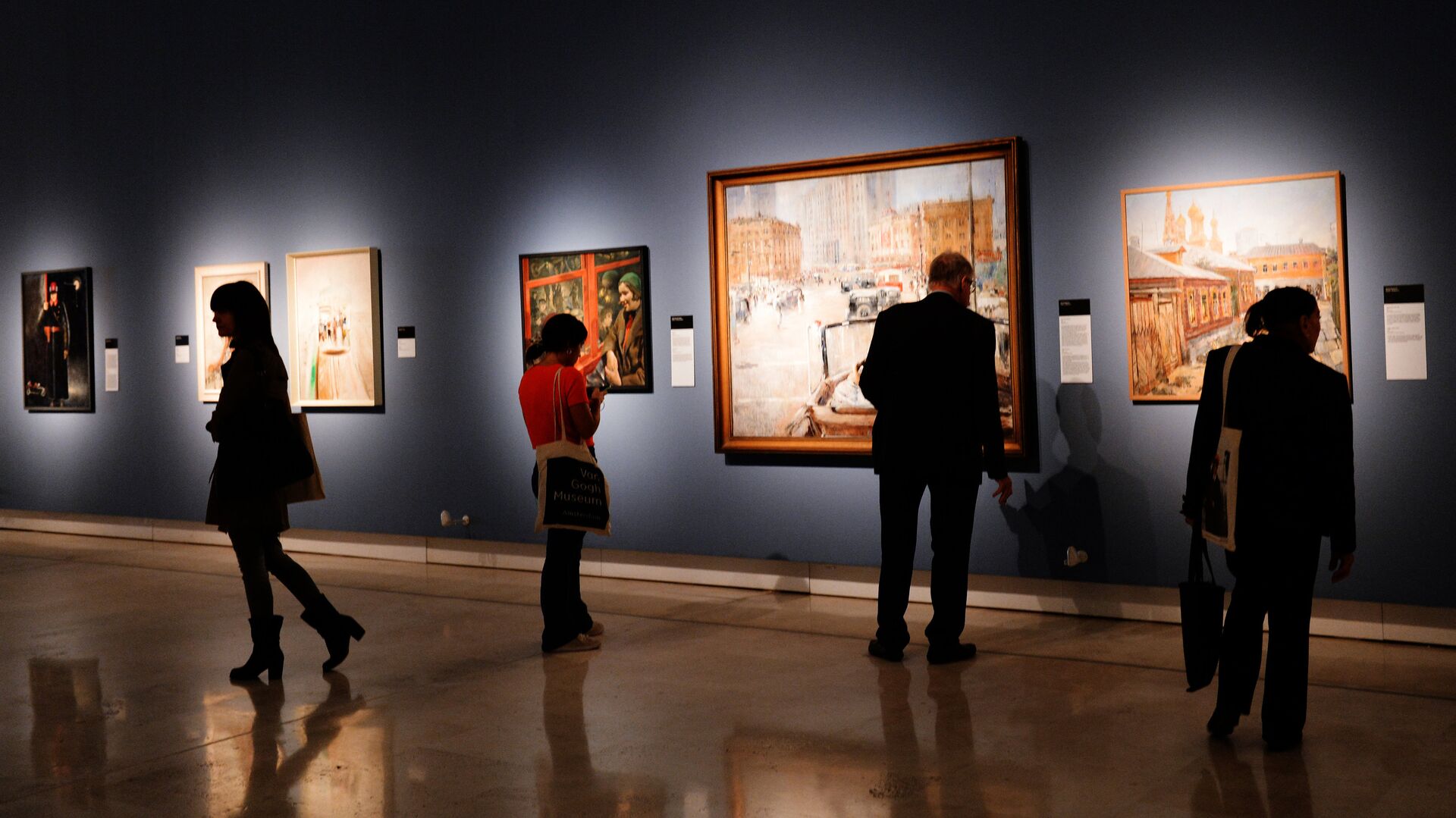https://sputnikglobe.com/20211012/us-museum-seeks-to-resolve-issue-of-immunity-of-art-collections-sent-from-russia--director-1089875521.html
US Museum Seeks to Resolve Issue of Immunity of Art Collections Sent From Russia- Director
US Museum Seeks to Resolve Issue of Immunity of Art Collections Sent From Russia- Director
Sputnik International
WASHINGTON (Sputnik) - The US-based Museum of Russian Icons in the state of Massachusetts is trying to resolve the issue of immunity with respect to art... 12.10.2021, Sputnik International
2021-10-12T22:47+0000
2021-10-12T22:47+0000
2022-10-19T20:52+0000
us
russia
museum
seizure
art
https://cdn1.img.sputnikglobe.com/img/103429/58/1034295875_0:59:3435:1991_1920x0_80_0_0_083c7fbcdc5f65d759bf0ec6b6f007f1.jpg
Russia imposed a moratorium on sending art collections to the United States nearly a decade ago after a US court ruled in favor of the Hasidic Chabad-Lubavitch group and said Moscow should return a collection of books of Rabbi Yosef Yitzchak Schneersohn. In response, Russia warned its state museums that any collection sent to the United States was at risk of being seized by the US authorities.“We have been advocating for some resolution about the immunity issue that the Russian authorities believe could be possible,” Russell said on Tuesday.Russel said that US Senators from the states of Massachusetts and New Hampshire have been very helpful in the attempts to resolve the immunity issue but described the situation as being a complicated and one in which both sides struggle due to a lack of trust.In 2013, the US District Court for the District of Columbia ordered Russia to pay a $50,000 fine every day until Moscow returned the Schneersohn collection, stored in Russia, to the Hasidic Chabad-Lubavitch group in the United States.The Russian Foreign Ministry described the court ruling as unjustified and provocative. Moscow emphasized that the Schneerson collection had been formed in Russia and is the national heritage of the Russian people as well as that it has immunity from jurisdiction given that it is a Russian state property.
russia
Sputnik International
feedback@sputniknews.com
+74956456601
MIA „Rossiya Segodnya“
2021
Sputnik International
feedback@sputniknews.com
+74956456601
MIA „Rossiya Segodnya“
News
en_EN
Sputnik International
feedback@sputniknews.com
+74956456601
MIA „Rossiya Segodnya“
Sputnik International
feedback@sputniknews.com
+74956456601
MIA „Rossiya Segodnya“
us, russia, museum, seizure, art
us, russia, museum, seizure, art
US Museum Seeks to Resolve Issue of Immunity of Art Collections Sent From Russia- Director
22:47 GMT 12.10.2021 (Updated: 20:52 GMT 19.10.2022) WASHINGTON (Sputnik) - The US-based Museum of Russian Icons in the state of Massachusetts is trying to resolve the issue of immunity with respect to art collections sent from Russia to the United States by pursuing a special resolution in Congress, Executive Director Kent Russell said.
Russia imposed a moratorium on sending art collections to the United States nearly a decade ago after a US court ruled in favor of the Hasidic Chabad-Lubavitch group and said Moscow should return a collection of books of Rabbi Yosef Yitzchak Schneersohn. In response, Russia warned its state museums that any collection sent to the United States was at risk of being seized by the US authorities.
“We have been advocating for some resolution about the immunity issue that the Russian authorities believe could be possible,” Russell said on Tuesday.
Russel said that US Senators from the states of Massachusetts and New Hampshire have been very helpful in the attempts to resolve the immunity issue but described the situation as being a complicated and one in which both sides struggle due to a lack of trust.
“We remain harmed by the existing situation,” Russell said.
In 2013, the US District Court for the District of Columbia ordered Russia to pay a $50,000 fine every day until Moscow returned the Schneersohn collection, stored in Russia, to the Hasidic Chabad-Lubavitch group in the United States.
The Russian Foreign Ministry described the court ruling as unjustified and provocative. Moscow emphasized that the Schneerson collection had been formed in Russia and is the national heritage of the Russian people as well as that it has immunity from jurisdiction given that it is a Russian state property.

